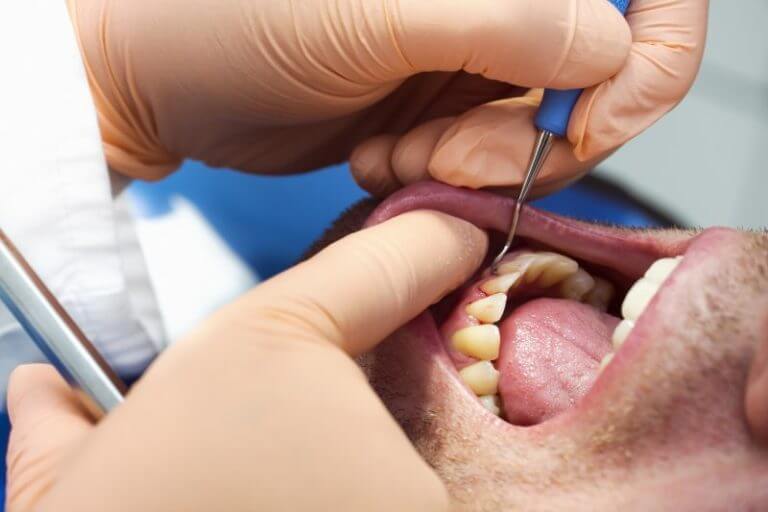National Gum Disease Awareness Month: Are Your Gums Healthy?
Are your gums looking swollen or redder than they usually do? Have you noticed that they bleed whenever you brush? Are your teeth looking longer than they used to? These are just a few of the signs that you could have some form of gum disease – and if you do, your smile and your overall health are at serious risk. As February is Gum Disease Awareness Month, now is a good time to have a periodontist remind you why gum disease treatment in Tallahassee is so important.
What are the Consequences of Gum Disease?
At first, gum disease might not seem that serious. The symptoms (such as swelling and bleeding gums in Tallahassee) will be very mild, and you may not even notice any pain. But sooner or later, it will become a serious health issue. The bacteria in the gums will eventually start destroying the underlying jawbone, and as a result your teeth will become loose. At some point, you could end up with several gaps in your grin, which leads to further oral health issues such as imbalanced bite.
Furthermore, the bacteria in gum disease can travel to other parts of the body through the bloodstream. Researchers have plenty of reason to believe that this can contribute to heart disease, diabetes, dementia, rheumatoid arthritis, and conditions related to inflammation. Treating gum disease may not prevent these health issues altogether, but there’s a good chance that you’ll keep the risk to a minimum.
What Can Be Done to Treat Gum Disease?
The key to stopping gum disease is to have your periodontist in Tallahassee get rid of all the bacteria that has built up in your mouth. To do this, often a deep cleaning needs to be performed. This procedure involves exposing the roots of the teeth so that bacteria can be scraped away before smoothing the surface to lower the risk of a future infection. Depending on how much damage the infection has already done, your periodontist might also need to perform osseous to repair the jawbone, allowing it to continue to support the teeth and gums while providing fewer spaces for bacteria to hide.
How Can I Avoid Gum Disease Entirely?
Ideally, gum disease treatment shouldn’t even be necessary; you can protect yourself from gum disease simply by practicing good oral hygiene and generally protecting your mouth. This means:
- Paying attention to the gum line whenever you brush
- Cleaning the spaces between your teeth with dental floss, an interdental brush, or a water flosser
- Attending regular dental checkups and cleanings
- Avoiding tobacco in any form
- Eating a healthy diet that’s low on sugar
If you think you could be at risk for gum disease or might already be suffering from the condition, get in touch with a periodontist to figure out the appropriate next steps. Acting quickly as soon as you notice a problem will make it much easier to keep your gums healthy and your smile whole!

